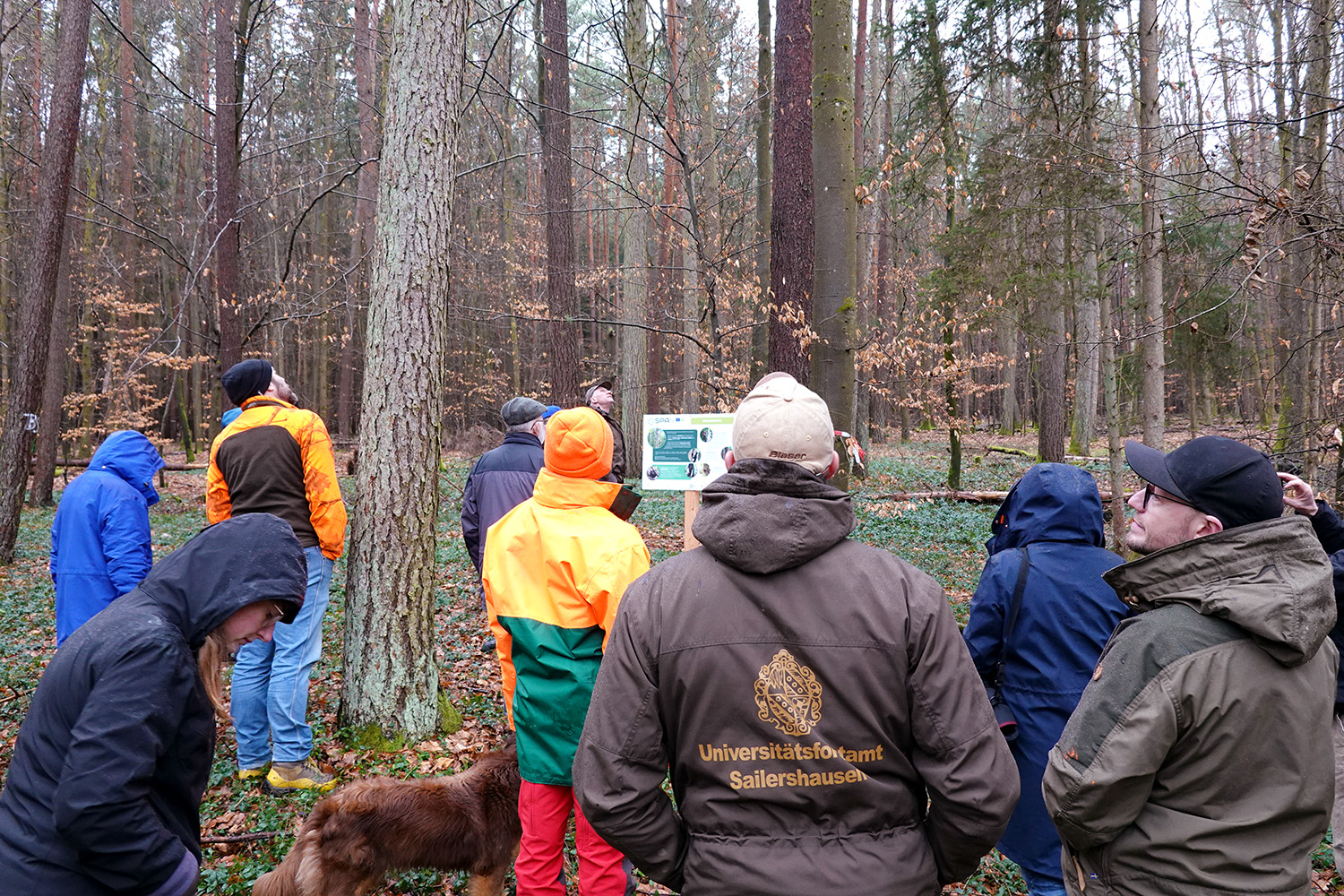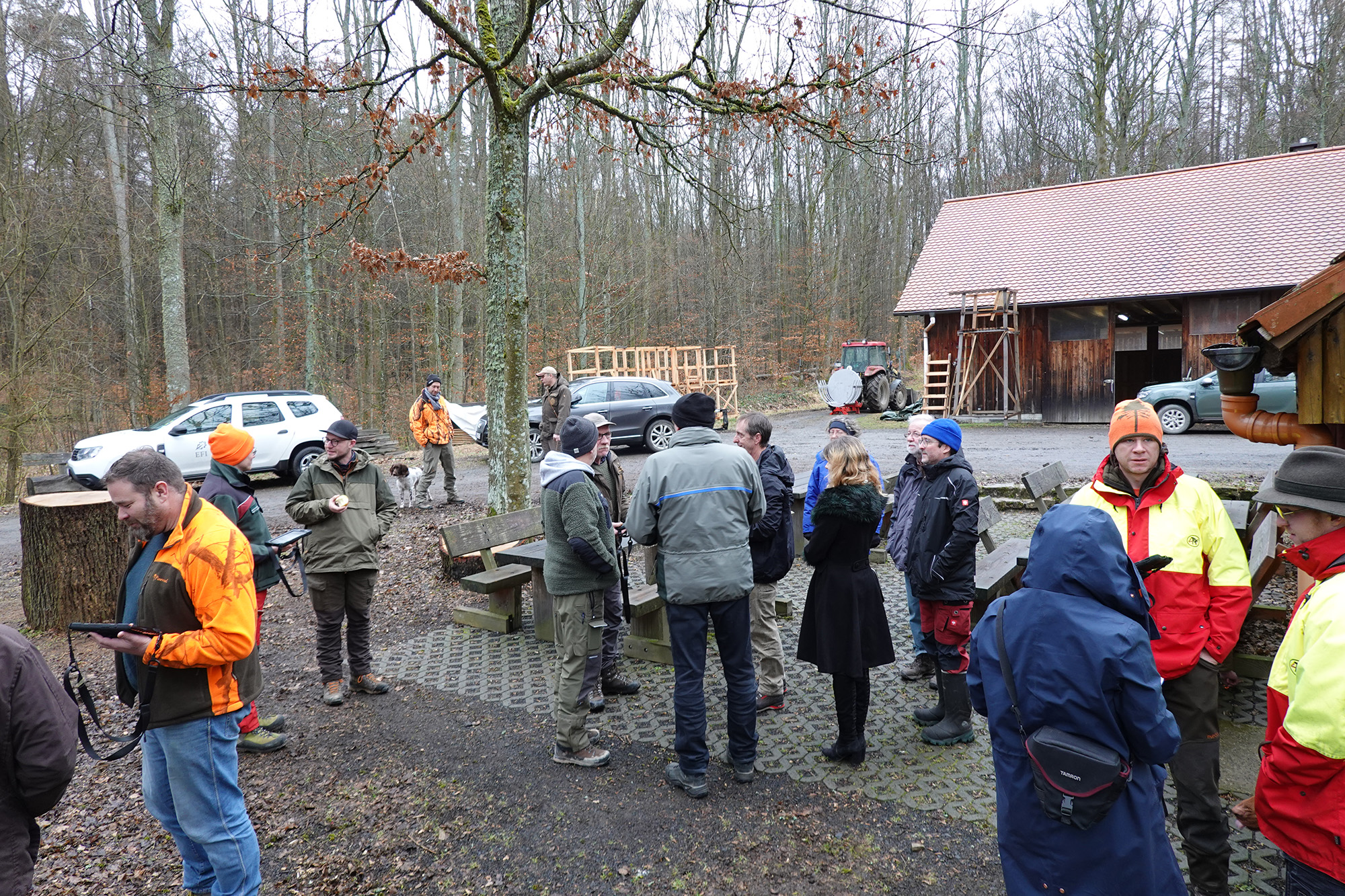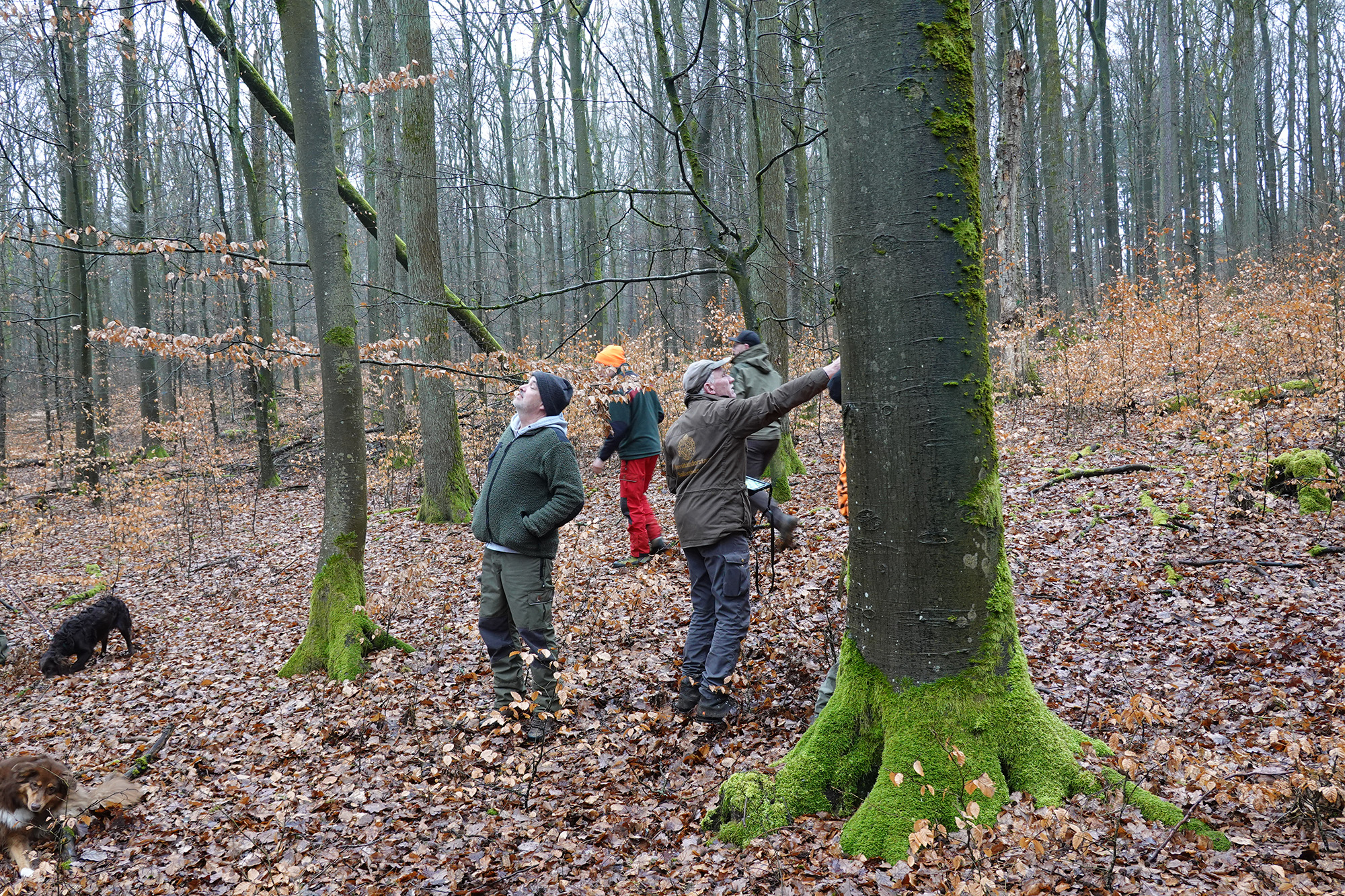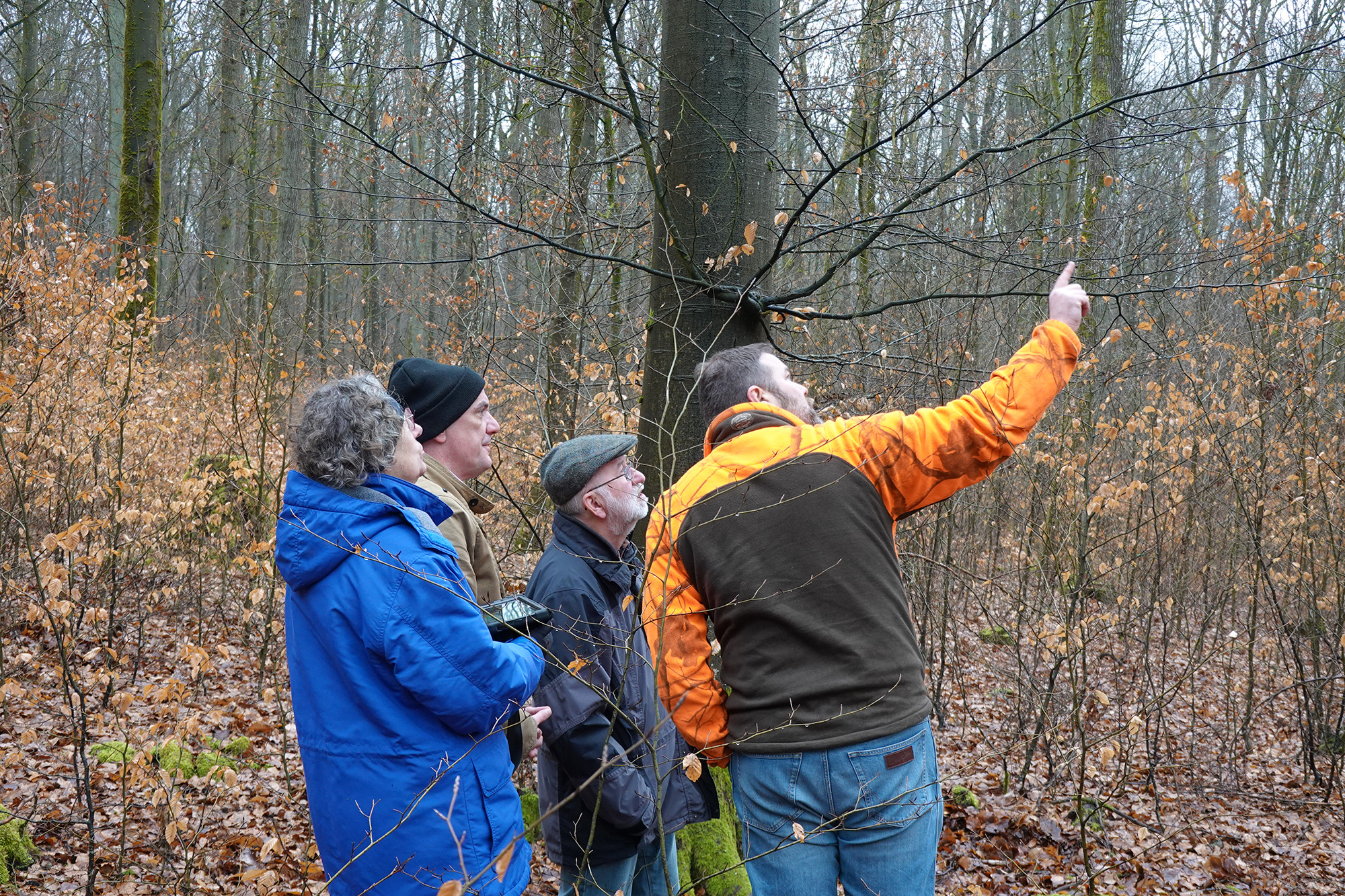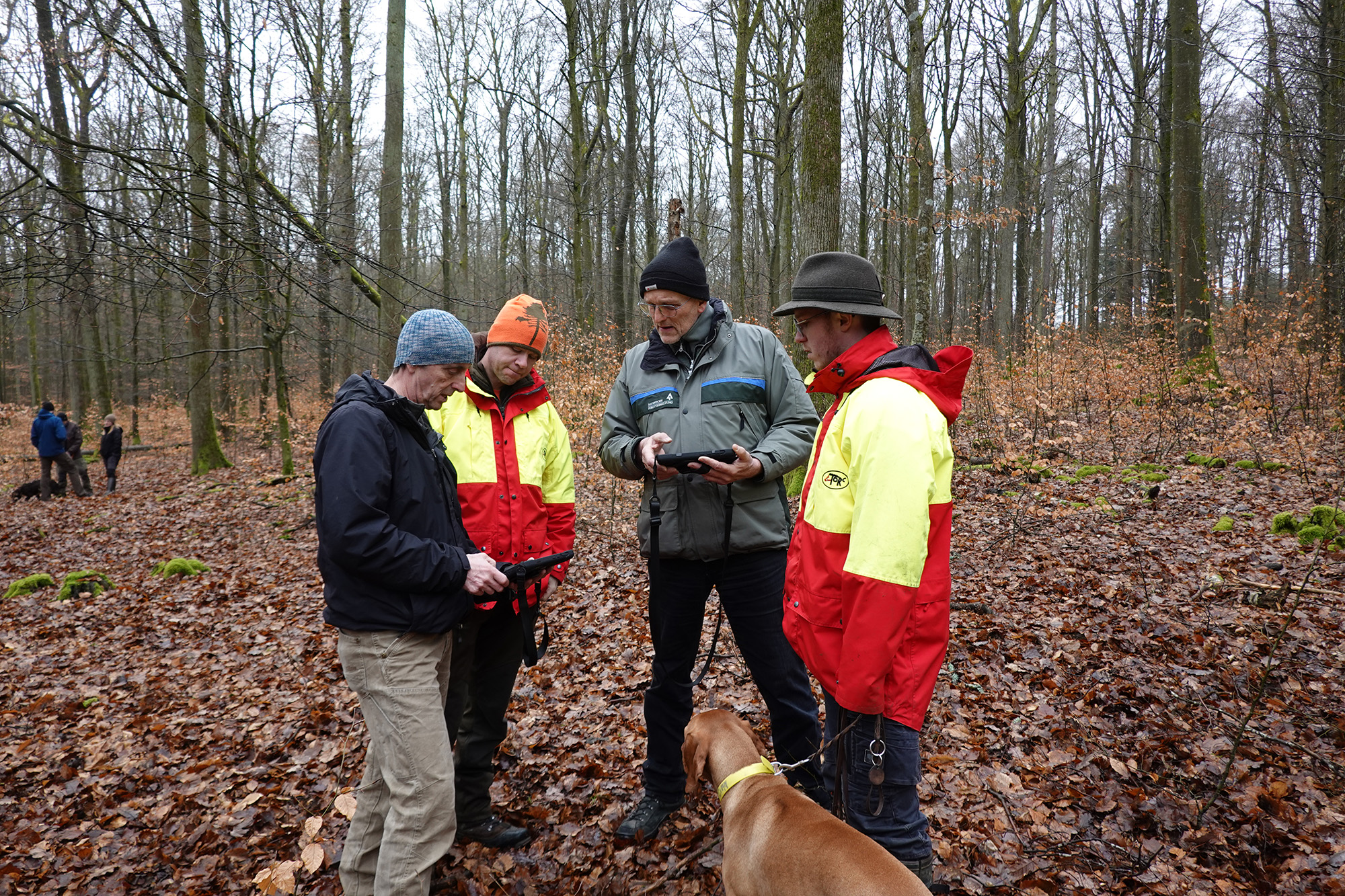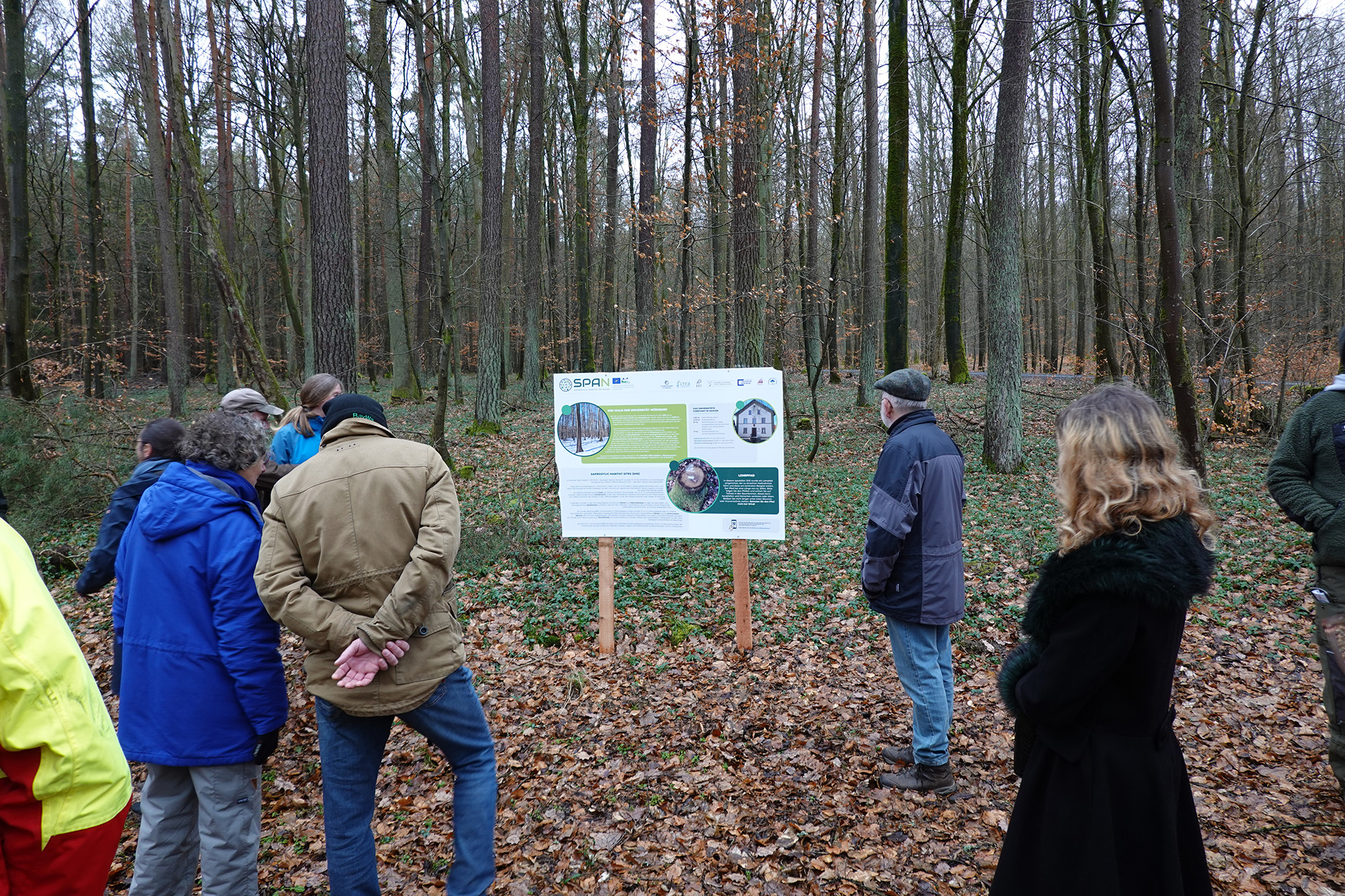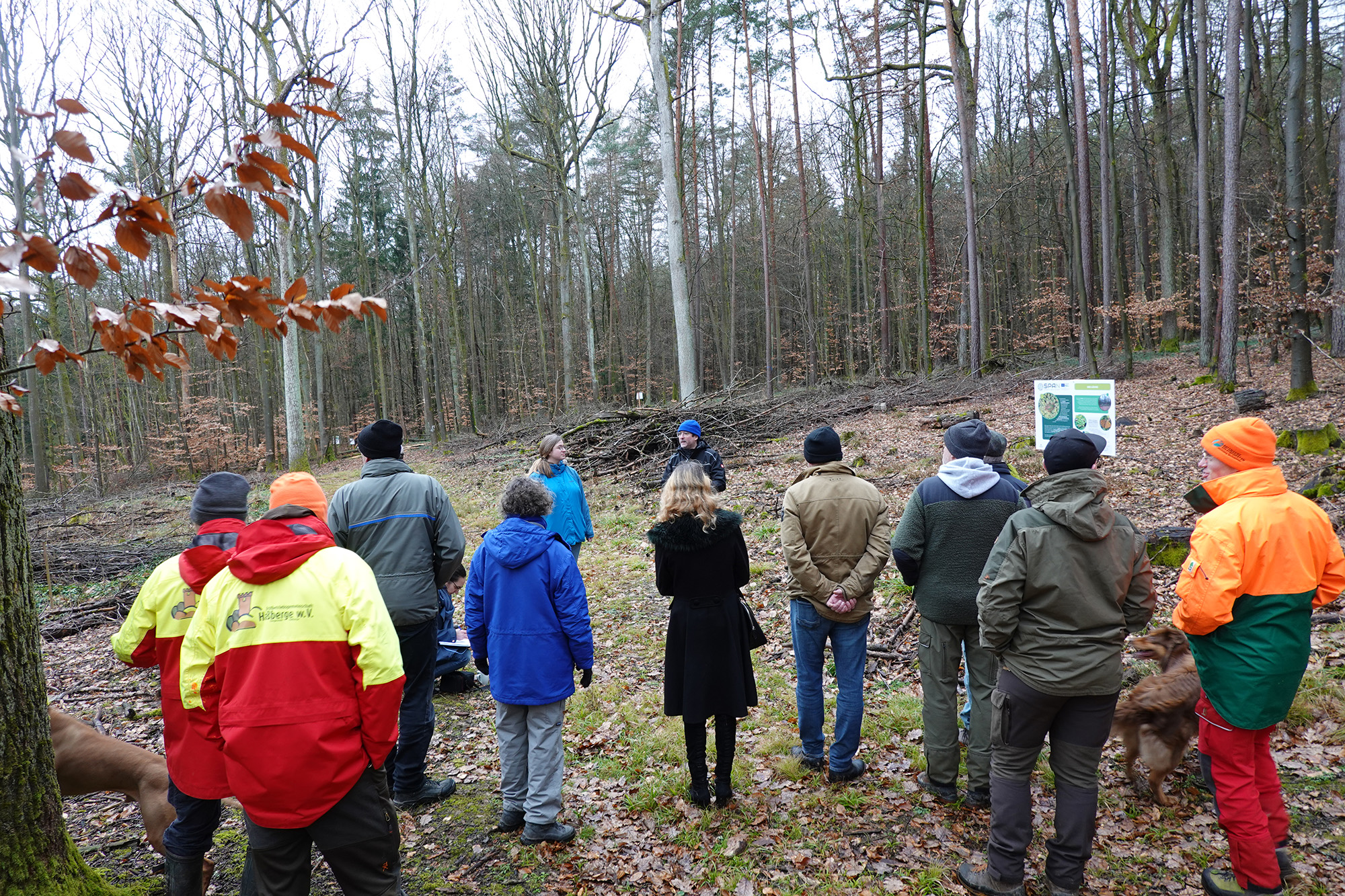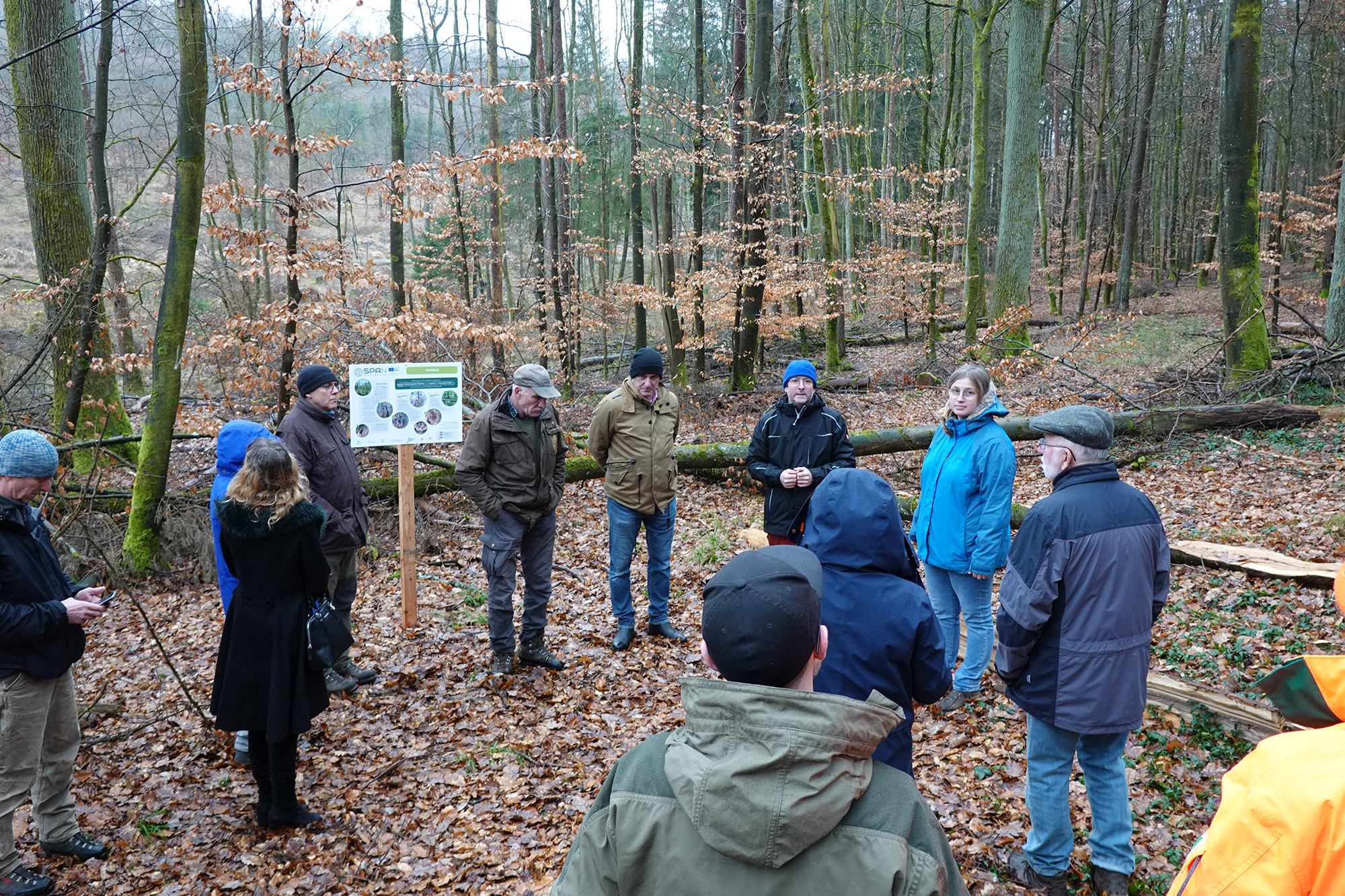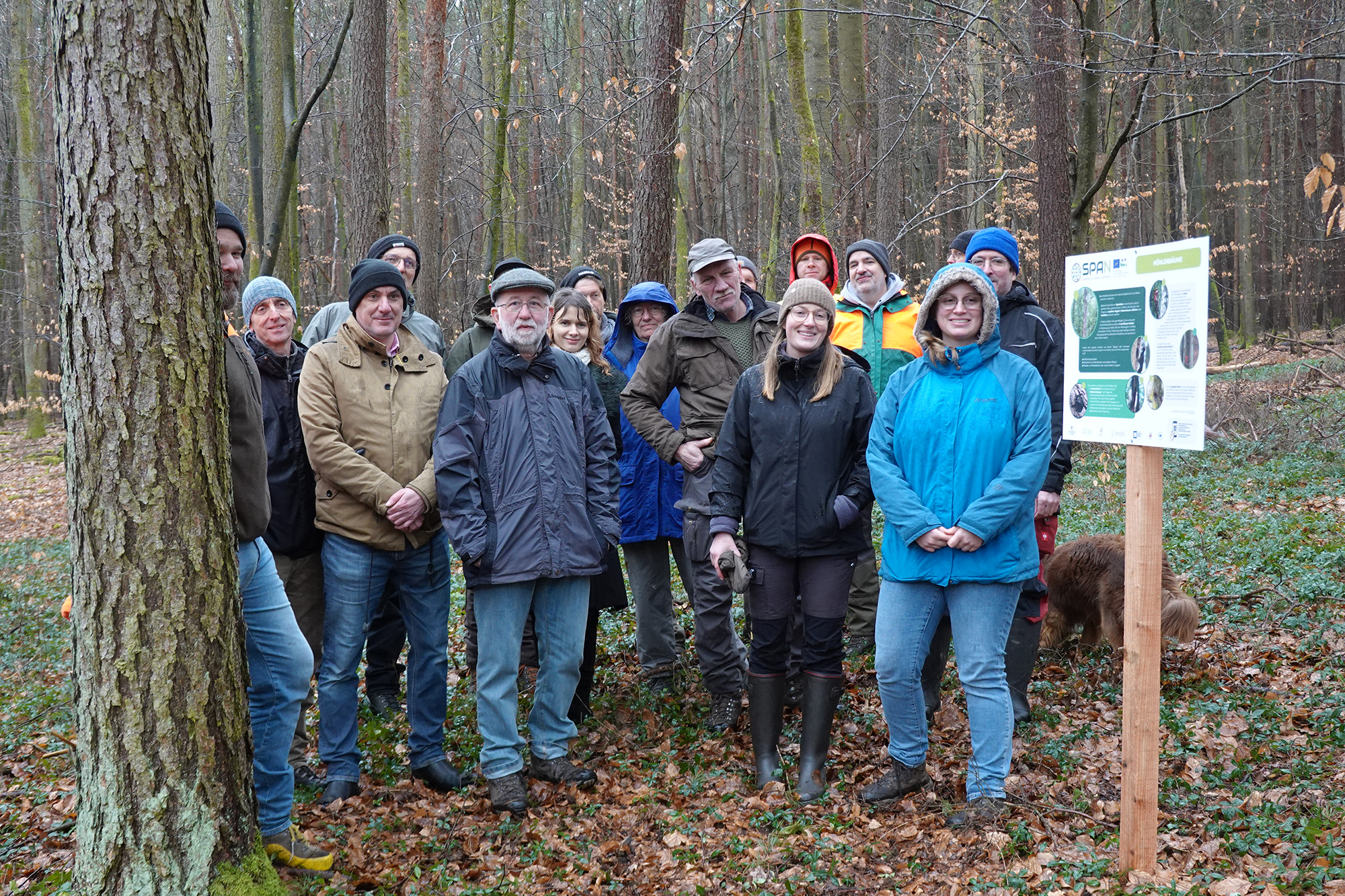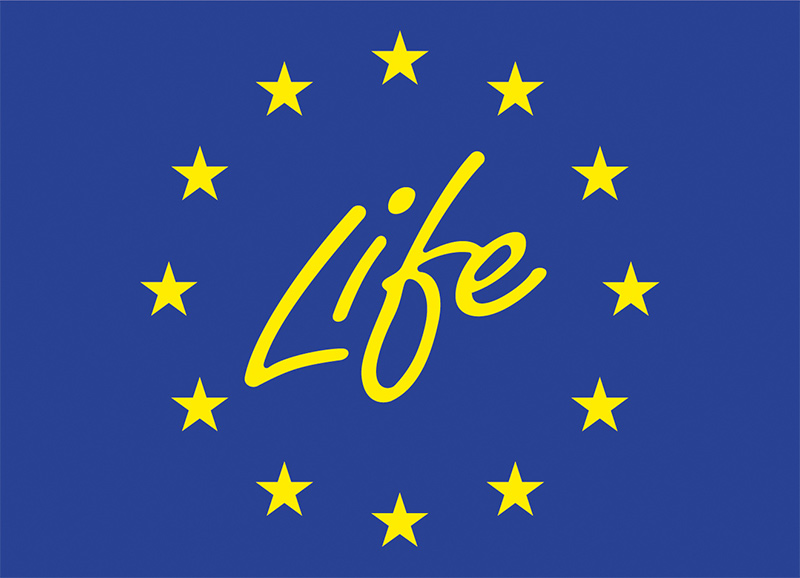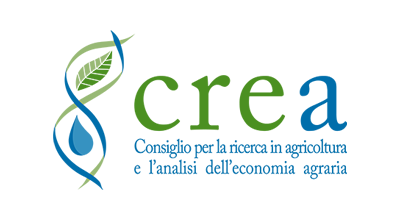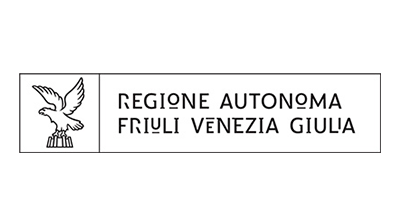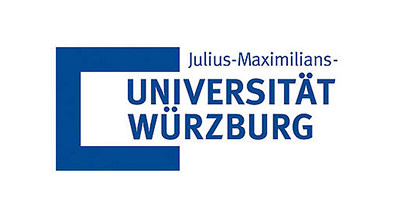Few weeks ago, a two-day workshop was held in Germany to discuss various management systems and their impact on biodiversity. In addition to employees of the University of Würzburg, representatives of the neighbouring forestry associations, forestry managers, conservationists and policymakers as well as interested parties were also involved.
Day 1
The first day, held at the Ecological Fieldstation of the University of Würzburg in Fabrikschleichach, began with an introduction to the LIFE SPAN project and a presentation of the projects’ actions and individual treatments of the Saproxylic Habitat Sites (SHS) to provide the participants with a theoretical background.
This was followed by presentations from science and research, including the effects of natural disturbances and sanitary cuts on biodiversity in the forest, as well as on deadwood structures and tree microhabitats and their specific influence on biodiversity in the forest. Dr. Kostadin Georgiev (HLNUG), Dr. Britta Uhl (University of Würzburg) and Ronja Nusser (University of Würzburg) were invited as speakers. After the session, there was a lively discussion about deadwood structures and enrichment in commercial forests, as well as the artificial creation of tree microhabitats, as implemented within the LIFE SPAN project.
In the afternoon, Barbara Ernwein (Baysf, Ebrach) spoke about experiences and results after almost two decades of the “stepping stone concept” at the Ebrach forestry operation, followed by the topic of light in the forest: Dr. Sebastian Vogel (BioZ, LfU) presented the importance of light forest structures for nature conservation using the example of Franconian coppice forests and Daniel Kraus (Baysf, Nordhalben) closed the series of lectures with the presentation "Light control in the forest - what is nature-friendly silviculture capable of?". In the final discussion of the first day, moderated by Ruth Pickert, the workshop participants had the opportunity to ask the speakers specific questions and discuss the measures of the projects. There was a consensus regarding public relations and education, which should be integrated more into science and research.
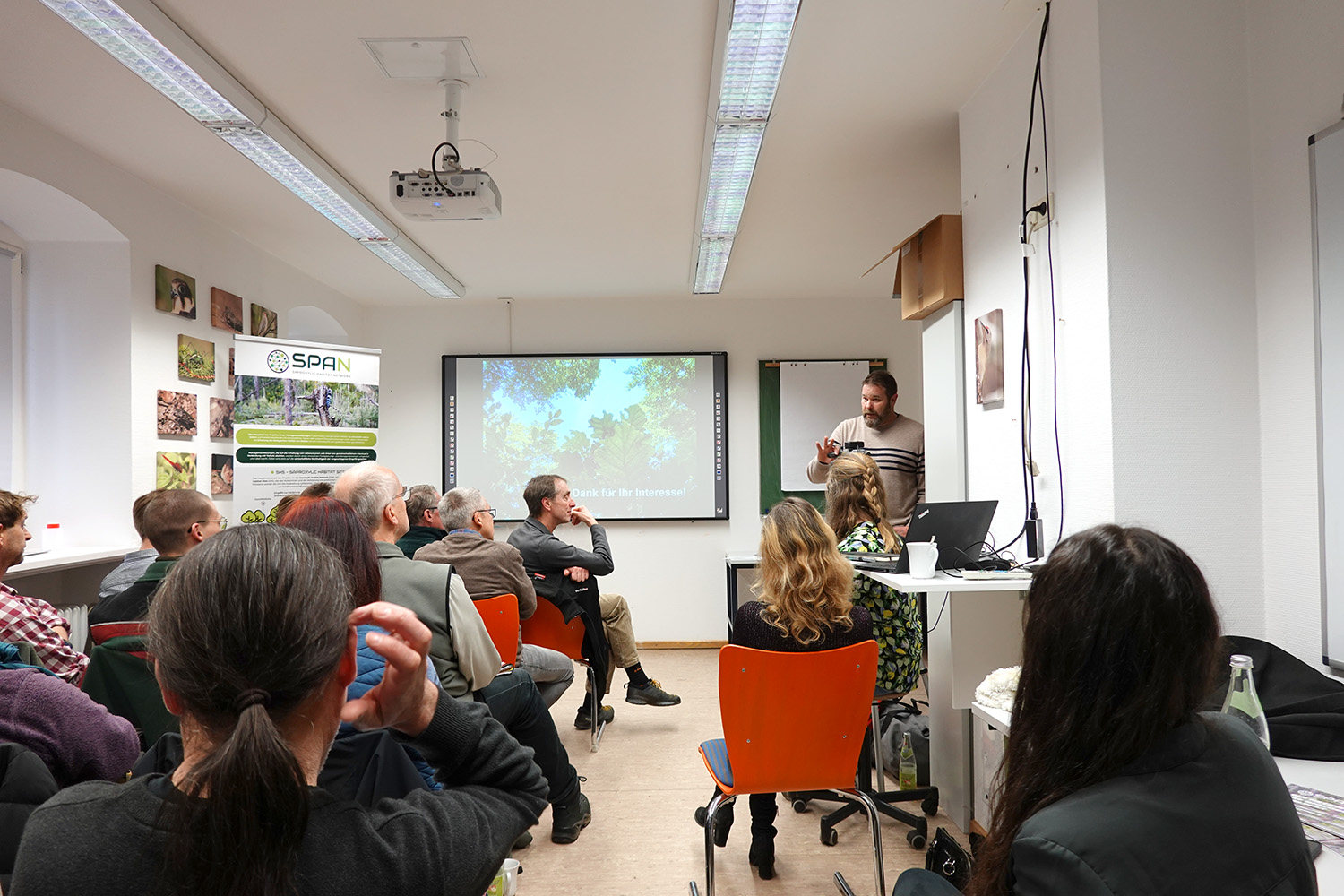
Day 2
On the second day, the participants had the opportunity to visit the operations directly on site at the University Forest Sailershausen. Hans Stark (University of Würzburg), head of the University Forestry Office, began with an introduction to the historical background of the University Forest, the management system and the stock. Andreas Schuck (EFI) then presented the Marteloscope and the associated training software, which was set up in the University Forest as part of the LIFE SPAN project. After the theoretical introduction, the participants were able to work with the training software themselves on the Marteloscope site in the stand using tablets and smartphones; Andreas Schuck and the staff of the LIFE SPAN project were on hand to provide support and answer questions about using the software.
Finally, Ruth Pickert and Michael Junginger (University of Würzburg) inaugurated the demonstration path, which was also created as part of the LIFE SPAN project and installed directly on an SHS. The trail presents the objectives of the project to the public and focuses on the specific measures such as the creation of a gap or the artificially created tree microhabitats but is also dedicated to the saproxylic species that are to be promoted.




